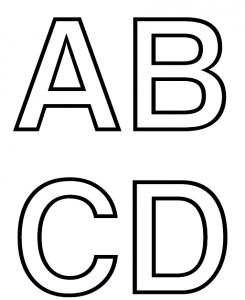Carry your entire medical history with you, in your pocket.
Never forget your doctor's appointment or to take your medication again.
Use your smartphone, cell phone, or PDA to access your records on the go!
Securely store your medical records such as X-Rays, test results and doctor's notes.
You ever wonder why getting medical records from one doctor to another is so difficult and time consuming? We decided to visually show how long the current process is, and how much quicker it would be if all medical records were electronic. Click infographic below to enlarge the image. We look forward to your feedback and comments below.
Embed
- By medefile Submitted on January 27th, 2011
 There are some interesting parallels between medical records and credit histories. Until recently, getting your credit history from the credit bureaus was almost impossible. The data was considered theirs and you were just the data’s subject, not its generator or owner.
There are some interesting parallels between medical records and credit histories. Until recently, getting your credit history from the credit bureaus was almost impossible. The data was considered theirs and you were just the data’s subject, not its generator or owner.
In many ways, health records are handled the same way. Ask your doctor for your medical record and you may get the run around. Despite the fact that the data is (intimately) about you and has many ramifications in your life, the record itself is considered owned by the medical professional in charge of your care, however the information contained within the records is the property of the patient.
- By Kevin Hauser Submitted on January 20th, 2011
 There are four parts to Medicare and for many, the choices are confusing. Retirees and those newly-covered by Medicare can find it confusing. Caregivers for loved ones on Medicare also find it daunting. The parts of Medicare are easy to understand, however, once you dig through the rhetoric and jargon often used in the insurance industry (and government, for that matter).
There are four parts to Medicare and for many, the choices are confusing. Retirees and those newly-covered by Medicare can find it confusing. Caregivers for loved ones on Medicare also find it daunting. The parts of Medicare are easy to understand, however, once you dig through the rhetoric and jargon often used in the insurance industry (and government, for that matter).
The four parts are Medicare Part A, B, C, and D. Parts A and B are also known as “Original Medicare” while Part C is often called “Medicare Advantage.” Part D is prescription drug coverage, sometimes referred to as “PD.”
- By Kevin Hauser Submitted on January 13th, 2011
In my work, I read a lot of what people are saying about Personal Health Record (PHR) systems and utilities. I have an obvious interest in knowing what the industry is doing and who’s talking about it. During this research, I’ve run into a lot of “experts” in PHR who talk about this, that, and the other when it comes to how these systems work and who’s got the “best” product.
One thing I’ve come to realize is that few “experts” are really, well experts. Picking a few of these supposed experts’ blogs, I contacted them (through an email that would not divulge MedeFile’s name) and simply asked which, if any, of the currently-available PHR systems out there would that expert recommend. The answer?
Most referred me to articles they’d written comparing features of various products, some mentioned one or two name brands, but only a couple of them would pinpoint a single product by name. Most hemmed and hawed about it, but were vague in their conclusions. The ones who did name names did so with a lot of caveats.
Now, I can understand being a little squeamish about recommending a specific product in today’s litigation-prone world. I can see few ways, however, that naming a software product (like a PHR) to be what you, as an expert, consider to be the best is going to cause any trouble. I have few qualms about recommending brands of food, clothing, and even cars to my friends and family and even people who ask me randomly on the street.
In fact, reading through a lot of the blog posts and writings that a lot of these experts (using the term loosely now) produce shows that most of them are just parroting one another. It’s like newspapers publishing Associated Press or Reuters articles exclusively, without hiring any of their own reporters to give a perspective on chosen stories. It’s just mindless repetition: new words to describe the same thing and come to the same conclusions. If I wanted that, I’d watch C-SPAN.
The point of this article today is to let you know that the self-proclaimed experts out there are rarely actually experts in anything. Instead of relying on anonymous bloggers, try the products yourself or listen to the real experts like doctors, paramedics, and people who’ve used the PHR itself.
No matter which one you choose, make sure it’s the right one for you. Just because it has a big name and a giant company behind it doesn’t mean it’s the best. Sometimes, the small guy who specializes offers something better than the big box store that specializes in nothing.
- By Kevin Hauser Submitted on January 12th, 2011
 By the title, you might guess that I’m about to go Dr. Phil and talk about how our social lives need an overhaul and healthcare reform might be the key for that. Sorry, that’s not the plan. The “social” I’m going to talk about is online social networking, through sites like Twitter and Facebook.
By the title, you might guess that I’m about to go Dr. Phil and talk about how our social lives need an overhaul and healthcare reform might be the key for that. Sorry, that’s not the plan. The “social” I’m going to talk about is online social networking, through sites like Twitter and Facebook.
The phenomenon has already begun: social networking on the Internet has begun to affect healthcare in many ways. This trend is going to explode, I think, during the coming year.
Traditionally, those with health care questions would ask their immediate social networks about them. This usually meant asking co-workers, family, close friends, etc. for recommendations, referrals, etc. More and more, this is going online with people sending tweets or posting updates to Facebook to ask their web of friends for advice or information.
- By Kevin Hauser Submitted on January 10th, 2011


